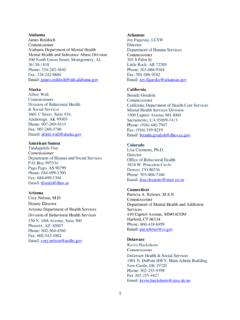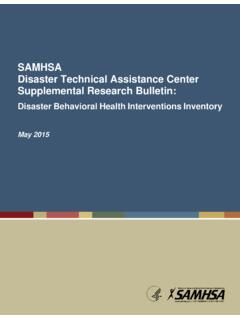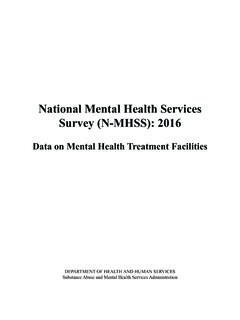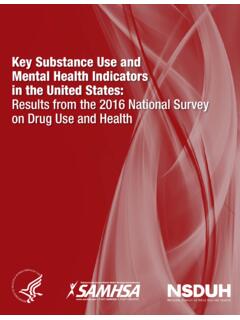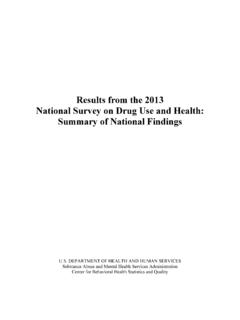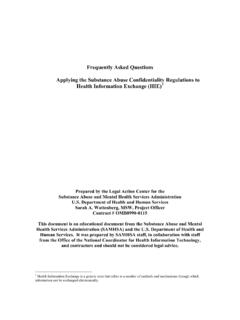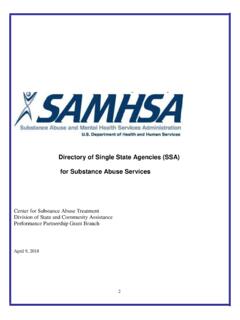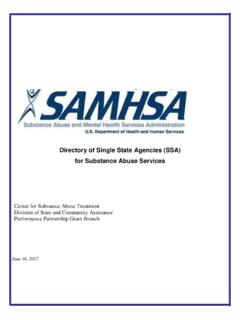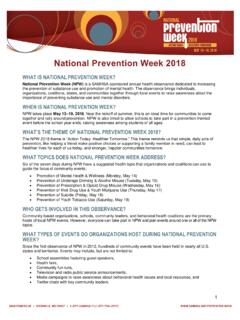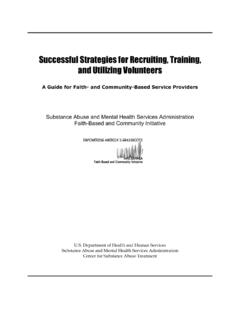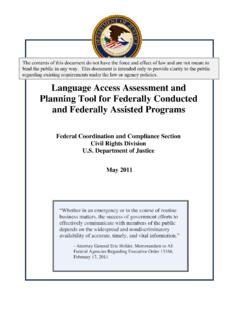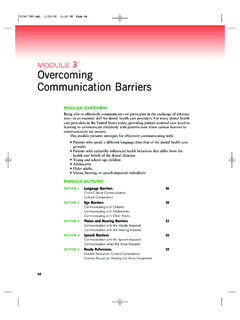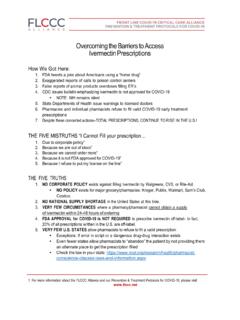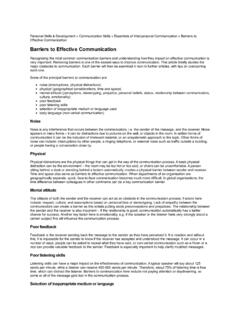Transcription of “Overcoming Stigma, Ending Discrimination”
1 overcoming Stigma, Ending Discrimination . RESOURCE GUIDE. The Addictionary. The Recovery Research Institute developed a glossary of over 200 top addiction- related words defined, to help medical professionals and the general public modify their language about addiction. Watch for (stigma alert) items. Ending Discrimination Against People with Mental and Substance Use Disorders: The Evidence for Stigma Change. The Office of the Assistant Secretary for Planning and Evaluation (ASPE) and the Substance Abuse and Mental Health Services Administration (SAMHSA) asked the National Academies of Sciences, Engineering, and Medicine to undertake a study of the science of stigma change. Changing the language of Addiction. This memo from former Director of The White House Office of National Drug Control Policy (ONDCP), Michael Botticelli, highlights the relationship between language and stigma.
2 Words Matter: How language Choice Can Reduce Stigma. Developed by the Substance Abuse and Mental Health Services Administration's Center for the Application of Prevention Technologies (CAPT), this training resource examines the role of language in perpetuating SUD stigma, offers tips to assess how and when we may be using stigmatizing language , and steps to ensure that we use language that is positive, productive, and inclusive. In 2015, the International Society of Addiction Journal Editors released a consensus statement recommending against the use of stigmatizing terminology, most notably abuse and abuser, in published addiction science. The Associated Press included a new entry on addiction and revised drug-related entries in the new edition of its widely-used AP Stylebook.
3 The Real Stigma of Substance Use Disorders: Does it Matter How We Talk About People with Substance Use Disorder? Dr. Kelly's 2010 research tested two different ways of referring to someone dealing with addiction, turning up important results for our understanding of language and addiction. Kelly, Saitz, and Wakeman (2015) summarize the public health need to reduce the perpetuation of the stigma surrounding addiction, a major barrier to treatment access, through language ; in other words, to stop talking dirty . The authors go on to detail the conceptual and empirical basis (2016). for the need to avoid using certain terms and to reach consensus on an addiction-ary , concluding The Power of Perceptions and Understanding: Changing How We Deliver Treatment and Recovery Services Webcast 1: overcoming Stigma, Ending Discrimination.
4 That consistent use of agreed-upon terminology will aid precise and unambiguous clinical and scientific communication and help reduce stigmatizing and discriminatory public health and social policies. Confronting Inadvertent Stigma & Pejorative language in Addiction Scholarship. Broyles and colleagues make an appeal for the use of language that gives dignity and respect to those suffering from substance use disorders. Stigma Among Healthcare Professionals Related to Substance Use Disorders: Systematic Reviews of Consequences and Interventions. Van Boekel and colleagues summarized the existing science on health professionals' attitudes toward individuals with substance use disorder, and the impact of any negative attitudes on healthcare delivery and outcomes.
5 In a related systematic review, Livingston and colleagues outlined results of studies focused on strategies to reduce stigma not only in health professionals but also for those with substance use disorder and the general public. This document is part of a training produced under contract number HHSP233201700228A with Massachusetts General Hospital, Recovery Research Institute, for the Substance Abuse and Mental Health Services Administration (SAMHSA), Department of Health and Human Services (HHS). The views, opinions, and content of the training are those of the preparers and do not necessarily reflect the official position of SAMHSA or HHS and do not constitute endorsement by SAMHSA or HHS. Page 2 of 2.
